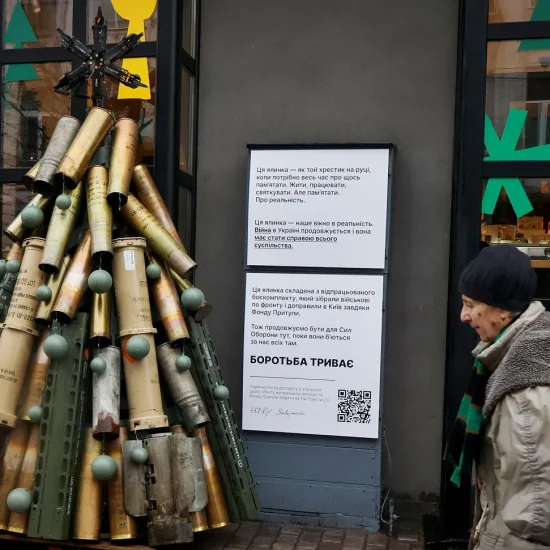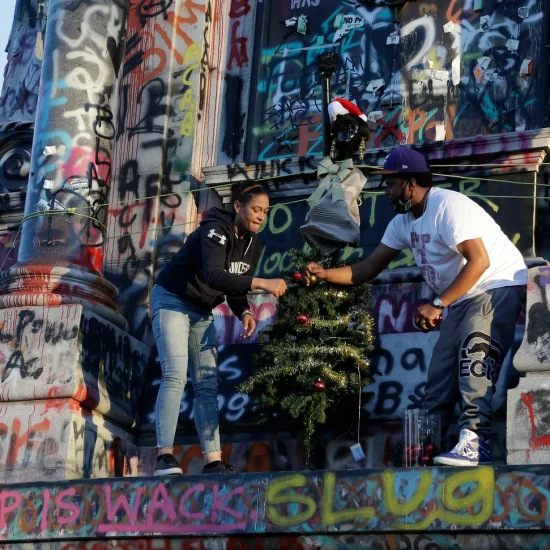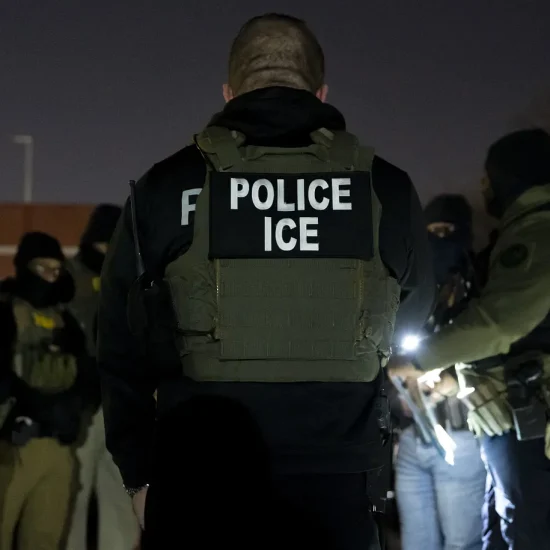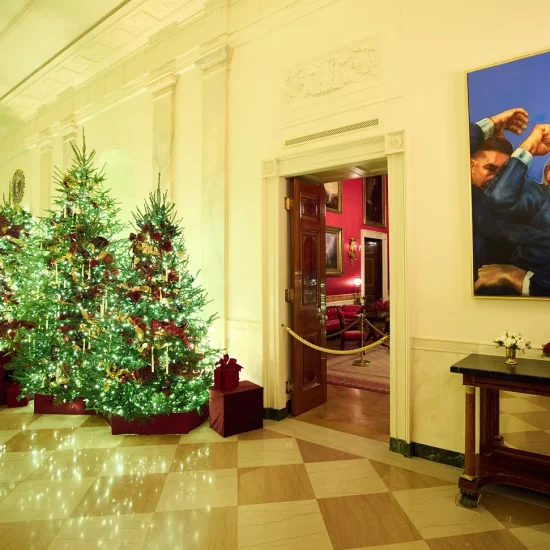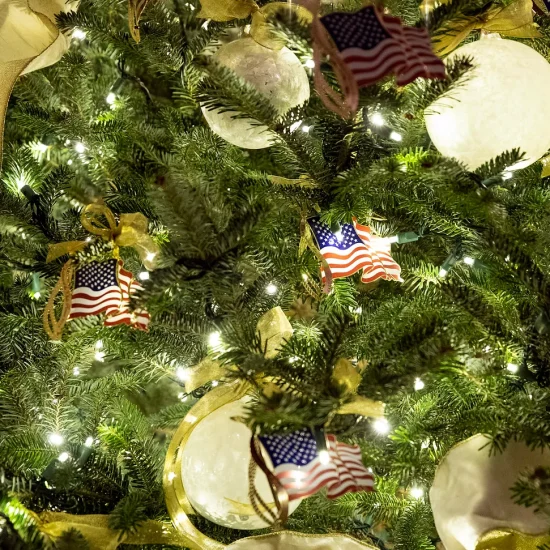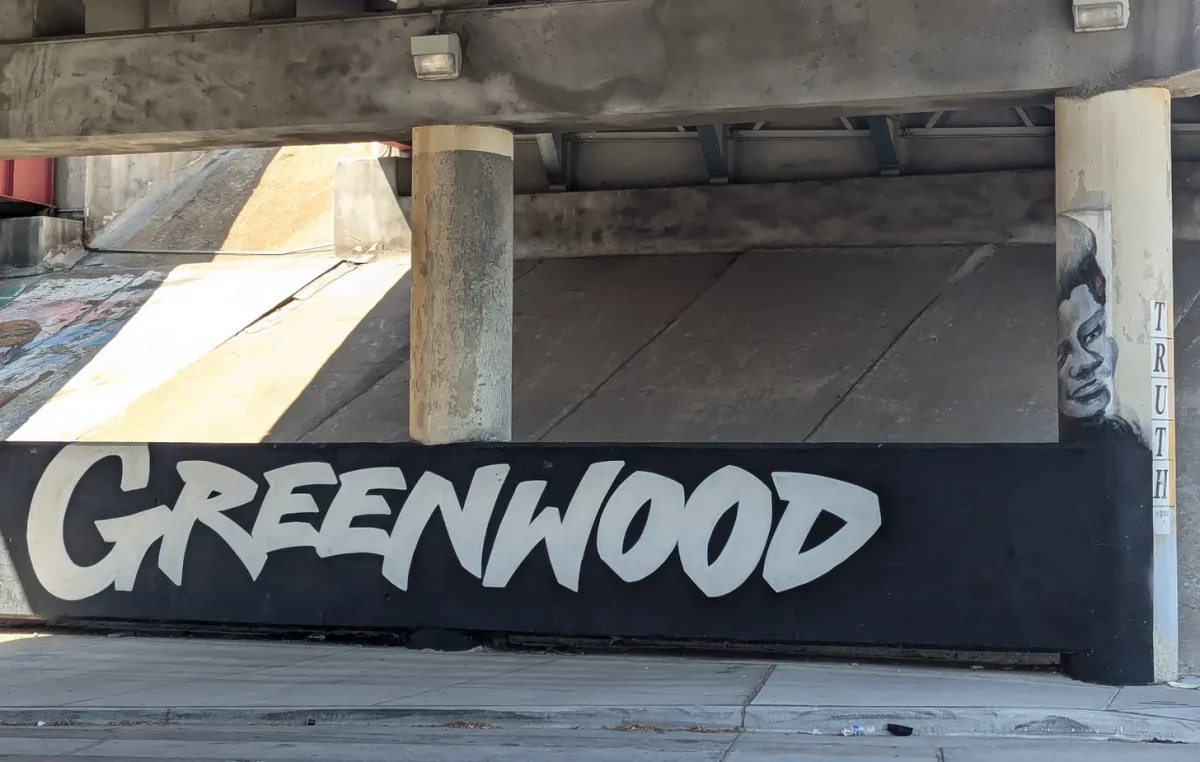
I recently traveled to Tulsa, Oklahoma, to speak at a Presbyterian church about Baptizing America and Christian Nationalism. It was a delightful three days with them as I met with a book club, delivered a public lecture on mainline Protestants and Christian Nationalism (in the home state of Ryan Walters), and taught a Sunday School class about theological problems of the idolatry of Christian Nationalism.
As a bonus, a member of the church gave me a tour of the city. I honestly hadn’t done much in Tulsa before except pass through. I enjoyed visiting the Woody Guthrie and Bob Dylan museums. A fan of both singers, I especially liked how much of their music I could listen to while learning about their lives and songs. But the most meaningful part of the tour was our visit to the historic Greenwood District.
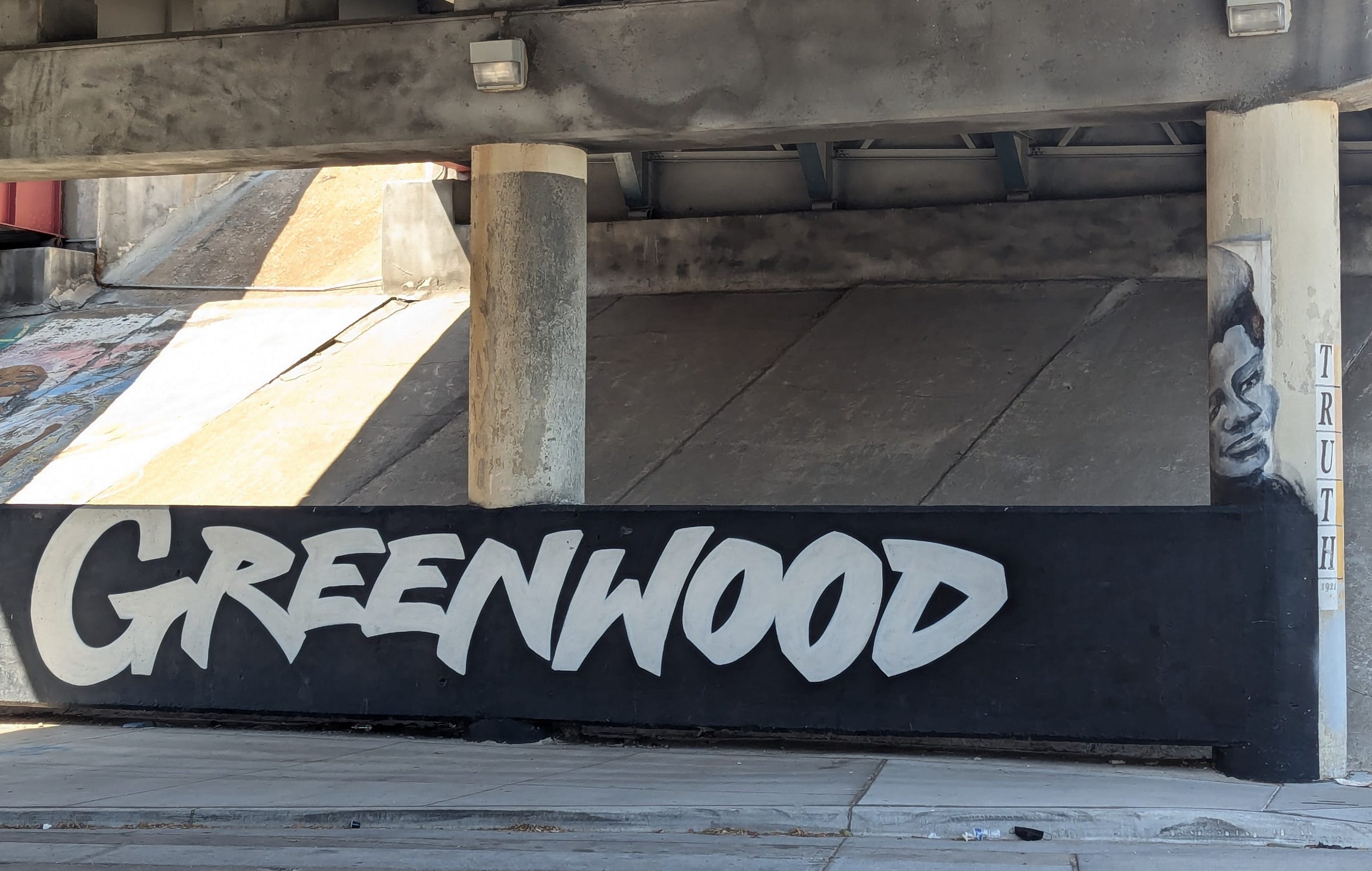
Street art in Greenwood. (Brian Kaylor/Word&Way)
Greenwood was a Black community on the other side of the tracks from downtown Tulsa. It became a place of prosperity in the early part of the 20th century, even earning the nickname “Black Wall Street.” There, Black Americans could find Black attorneys, doctors, barbers, grocery stores, and pretty much any other business or service they needed. It provided not only economic success but also dignity for people who found themselves discriminated against in that era of Jim Crow laws and lynchings.
Then in 1921, hell came to the paradise of Greenwood.

The rest of this piece is only available to paid subscribers of the Word&Way e-newsletter A Public Witness. Subscribe today to read this essay and all previous issues, and receive future ones in your inbox.

